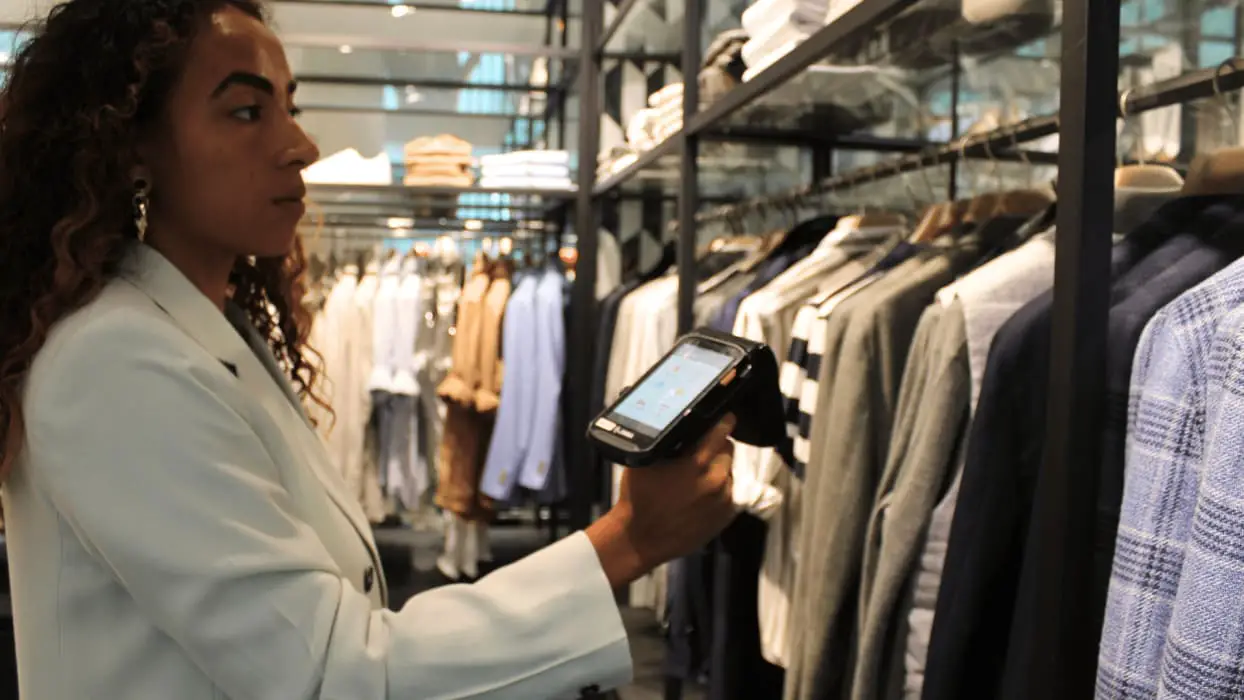In the ever-evolving retail industry, staying competitive requires embracing innovative technologies that streamline operations and enhance customer experiences. One such technology is Radio-Frequency Identification (RFID), which has transformed inventory management and retail operations. Retailers can significantly improve accuracy, efficiency, and profitability by incorporating RFID solutions, specifically RFID tags. Here are the top 10 benefits of implementing RFID solutions in retail.
- Enhanced Inventory Accuracy
RFID tags greatly enhance inventory accuracy by providing precise, real-time data on stock levels. Unlike traditional barcode systems, RFID tags can be read remotely, even when not directly visible, allowing faster and more accurate inventory counts. This reduces discrepancies and ensures that stock levels are accurately reflected in the system, preventing stockouts and overstock situations.
- Increased Efficiency in Inventory Management
Implementing RFID solutions streamlines the inventory management process. RFID tags can be scanned quickly and simultaneously, unlike barcodes that require line-of-sight scanning. This automation reduces the time and labor involved in manual inventory checks, allowing employees to focus on more critical tasks. The increased efficiency also minimizes human errors, further enhancing operational productivity.
- Real-Time Inventory Tracking
One of the standout features of RFID tags is their ability to provide real-time tracking and visibility of inventory. Retailers can monitor the movement of products from the warehouse to store shelves, gaining insights into stock levels at any moment. This real-time visibility enables better decision-making, ensuring that popular items are always in stock and reducing the risk of lost sales due to stockouts.
- Reduced Shrinkage and Theft
Shrinkage due to theft, loss, or damage is a significant concern for retailers. RFID tags help mitigate this issue by providing accurate and real-time data on inventory levels and item locations. Retailers can quickly identify discrepancies and take immediate action to address potential theft or loss. The enhanced visibility provided by RFID also acts as a deterrent to theft, contributing to a reduction in shrinkage and improving overall profitability.
- Enhanced Customer Experience
Implementing RFID solutions in retail can significantly enhance the customer experience. With accurate and up-to-date inventory data, retailers can ensure that products are always available, reducing the likelihood of customers leaving empty-handed. Additionally, RFID technology enables faster checkout processes, as multiple items can be scanned simultaneously, reducing wait times, and enhancing customer satisfaction. Encouraging a seamless shopping experience can lead to repeat business and foster customer loyalty.
- Streamlined Supply Chain Management
RFID tags provide better visibility and control over the supply chain. Retailers can track products from the point of manufacture to store shelves, identifying any bottlenecks or inefficiencies in the supply chain. This increased visibility allows for better coordination with suppliers, ensuring timely deliveries and reducing lead times. Streamlined supply chain management improves operational efficiency and ensures that products are available when customers need them.
- Cost Savings
Although the upfront cost of RFID technology may seem high, the long-term savings are significant. By reducing the labor costs associated with manual inventory counts and minimizing losses due to shrinkage, RFID technology provides a strong return on investment (ROI) for retailers. Additionally, the improved efficiency and accuracy offered by RFID solutions result in lower operational costs, further enhancing profitability.
- Better Data Analytics and Insights
RFID technology generates a wealth of data that can be leveraged for advanced analytics and insights. Retailers can gain valuable information on sales patterns, inventory turnover rates, and customer preferences. This data-driven approach enables better forecasting and inventory management, allowing retailers to make informed decisions that drive sales and improve customer satisfaction. Enhanced data analytics also helps retailers identify trends and adjust their strategies accordingly.
- Improved Loss Prevention
In addition to reducing theft, RFID technology improves overall loss prevention by providing accurate and real-time data on inventory levels. Retailers can quickly identify and address any issues related to damaged or misplaced items, ensuring that products are available for sale. The ability to track inventory accurately also reduces the risk of errors and losses during transportation and storage, further enhancing loss prevention efforts.
- Scalability and Flexibility
RFID solutions offer scalability and flexibility, making them suitable for retailers of all sizes. Whether managing a single store or a large chain, RFID technology can be scaled to meet the specific needs of the business. The portability of handheld RFID readers allows for flexible use in various locations, including stores, warehouses, and distribution centers. This scalability ensures that retailers can continue to benefit from RFID technology as their business grows and evolves.
Conclusion
Implementing RFID solutions, particularly RFID tags, in retail provides numerous benefits that enhance accuracy, efficiency, and profitability. From improved inventory management and real-time tracking to reduced shrinkage and enhanced customer experiences, RFID technology is a game-changer for the retail industry. By embracing RFID solutions, retailers can stay ahead of the competition, optimize their operations, and deliver exceptional value to their customers. The long-term advantages of RFID technology far outweigh the initial investment, making it a wise choice for retailers looking to innovate and grow in a competitive market.





